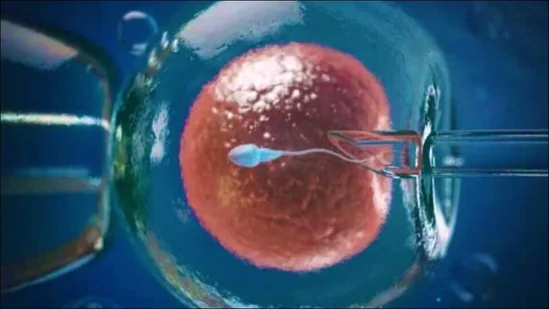
IVF/Infertility
IVF (in vitro fertilization) is a type of assisted reproductive technology (ART) that helps people who are having trouble conceiving. During IVF, eggs are removed from a woman's ovaries and fertilized with sperm in a laboratory. The fertilized eggs, or embryos, are then placed in the woman's uterus in the hope that they will implant and develop into a pregnancy.
IVF is a complex procedure that involves a number of steps, including:
-
 Fertility medications.To stimulate the ovaries to produce multiple eggs, women who undergo IVF typically take fertility medications. These medications can cause side effects such as bloating, nausea, and mood swings.
Fertility medications.To stimulate the ovaries to produce multiple eggs, women who undergo IVF typically take fertility medications. These medications can cause side effects such as bloating, nausea, and mood swings. -
 Egg retrieval.Once the ovaries have produced a few mature eggs, they are removed from the body through a needle inserted into the vagina. The egg retrieval procedure is performed under anesthesia and is usually done on an outpatient basis.
Egg retrieval.Once the ovaries have produced a few mature eggs, they are removed from the body through a needle inserted into the vagina. The egg retrieval procedure is performed under anesthesia and is usually done on an outpatient basis. -
 In vitro fertilization.The eggs that are retrieved are then fertilized with sperm in a laboratory dish. This can be done by placing the eggs and sperm together in a petri dish or by injecting a single sperm into each egg.
In vitro fertilization.The eggs that are retrieved are then fertilized with sperm in a laboratory dish. This can be done by placing the eggs and sperm together in a petri dish or by injecting a single sperm into each egg. -
 Embryo transfer.After the eggs have been fertilized, they are transferred to the woman's uterus. This is done using a thin catheter that is inserted through the vagina and cervix.
Embryo transfer.After the eggs have been fertilized, they are transferred to the woman's uterus. This is done using a thin catheter that is inserted through the vagina and cervix.
The success rate of IVF varies depending on a number of factors, including the woman's age, the quality of her eggs and sperm, and the cause of her infertility. The overall success rate for IVF is about 40%. However, the success rate is higher for women under the age of 35.
IVF is a safe and effective treatment for infertility. However, it is not without risks. Some of the risks associated with IVF include:
-
 Ovarian hyperstimulation syndrome (OHSS).OHSS is a rare but serious complication of IVF that can cause fluid buildup in the abdomen and chest.
Ovarian hyperstimulation syndrome (OHSS).OHSS is a rare but serious complication of IVF that can cause fluid buildup in the abdomen and chest. -
 Ectopic pregnancy.An ectopic pregnancy is a pregnancy that occurs outside of the uterus. This can be a life-threatening condition.
Ectopic pregnancy.An ectopic pregnancy is a pregnancy that occurs outside of the uterus. This can be a life-threatening condition. -
 Multiple birthsIVF can increase the risk of multiple births, which can pose health risks to both the mother and the babies.
Multiple birthsIVF can increase the risk of multiple births, which can pose health risks to both the mother and the babies.
